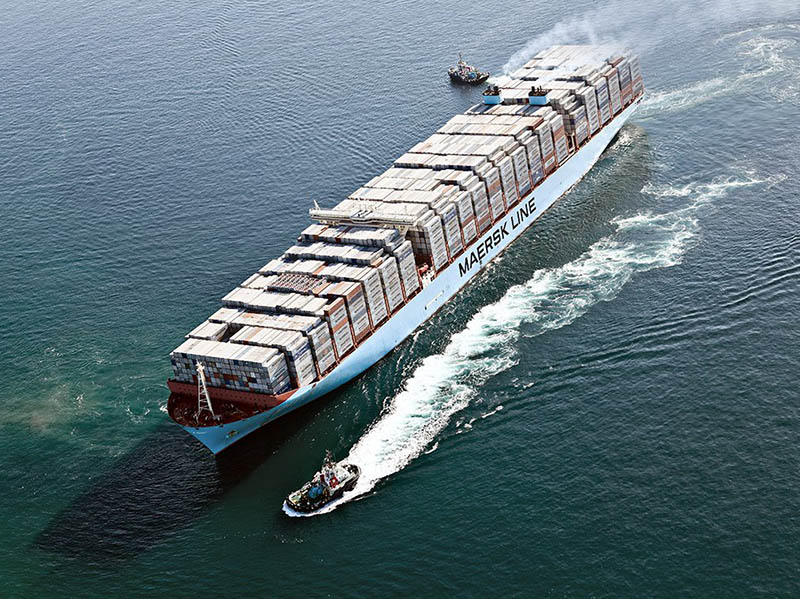Crime on the high seas is becoming increasingly sophisticated, endangering human life on land, the economic growth of entire regions and global safety, the head of the United Nations anti-crime agency warned the Security Council Tuesday, underscoring the vital role of international legal treaties in combating the scourge.
Yury Fedotov, executive director of the UN's Office on Drugs and Crime (UNODC), briefing via video-teleconference from Vienna, told the 15-member Council that maritime crime involved vessels, cargoes, crews and illicit money flows from many regions. With its reach spanning from sea to coast guard offices, courtrooms and prisons, UNODC works to curb cocaine trafficking in the Atlantic, heroin trafficking in the Indian Ocean, migrant smuggling in the Mediterranean, and piracy and armed robbery at sea in the Gulf of Guinea.
“These crimes pose an immediate danger to people’s lives and safety, they undermine human rights, hinder sustainable development, and as this Council has recognized, they threaten international peace and security,” Fedotov stressed.
He urged member states to ratify and effectively implement the relevant international legal framework to curb maritime crime, stressing the critical role of various UN instruments, including the Convention on the Law of the Sea, the Convention against Transnational Organized Crime and its protocols, the Convention against Illicit Traffic in Narcotic Drugs and Psychotropic Substances and the Convention for the Suppression of Unlawful Acts against the Safety of Maritime Navigation.
He also noted UNODC’s work in supporting trials in Kenya and Seychelles, its involvement in the humane imprisonment of convicted pirates and its recently completed first phase of the Mogadishu Prison and Court Complex, which will soon be handed over to the government of Somalia to provide a secure environment for the trial of those suspected of maritime crime. Underlining the important collaboration between his agency and other international agencies, he commended support from the International Criminal Police Organization (INTERPOL), and the International Maritime Organization (IMO), and he urged countries to enhance technical assistance so that “criminal kingpins” are brought to justice.
Florentina Adenike-Ukonga, executive secretary of the Gulf of Guinea Commission, also briefing the Council, recalled that the Commission was established in 2001 to reduce and eventually eliminate transnational crimes at sea. Crime is on the rise in the Gulf, destabilizing the entire region while threatening international peace and security. Along some 9,650 miles of coastline, the area covers a wide expanse of water which no one country can successfully patrol. The Commission has become critical in identifying problems, pooling resources and encouraging member countries to secure their maritime borders.
Transnational organized crime in the Gulf of Guinea can be reduced through coordinated national, regional and international intervention, she continued. At the national level, she recommended Governments resolve disagreements with criminal perpetrators, provide opportunities to curb restlessness of young people and create adequate jobs at home. While cooperation among neighboring countries on illicit crime is essential, global partners could also offer assistance for poverty-reduction projects and investment in vital infrastructure.
“What is happening in the Gulf of Guinea is important for everyone here,” said Simeon Oyono Esono Angue, minister for foreign affairs of Equatorial Guinea, in the ensuing discussion.
He commended international and regional efforts, including the African Union’s initiative to foster the development of a prosperous and sustainable “blue economy.” Countries in Central and West Africa, including Equatorial Guinea, share the Gulf of Guinea, which is one of the largest and most populated geopolitical spaces on the continent. “The zone is essential for the survival of my country,” he stressed.
Sounding a similar alarm, South Africa’s representative said that, every day, an average of 580 ships traverse the country’s more than 2,800‑kilometer coastline. Transnational crimes at sea fuel conflicts in Africa, deny his country millions of dollars of revenue and contribute to the spread of small arms and light weapons, and drug and human trafficking. While welcoming progress made in regional initiatives, including through the African Union’s Decade of the African Seas and Oceans, he called for robust, coordinated approaches at the national, regional and international levels.
The representative of Sri Lanka said that, as an island nation strategically located in the Indian Ocean, his country recognized the unique nature of high seas which fall outside the jurisdiction of a single State. He expressed concern that the seabed is fast becoming a tangle of ungoverned seabed cables, presenting a new threat to international peace and security. “These crimes must not be allowed to fall into a zone where a legal vacuum exists,” he warned.
Many speakers emphasized the need to address the root causes that drive young people to engage in illegal activities in the first place. Japan’s representative said poverty provides a fertile environment for organized crime. “What pushes a young person to take extraordinary risks every day to produce illegal kerosene to sell on the black market, or to hijack a tanker and take hostages for ransom? Poverty and a lack of opportunity,” he said.
The representative of the Dominican Republic expressed deep concern over the data on drug trafficking, which has greatly affected his region. The trafficking of cocaine, heroin and opioids is particularly alarming, he stressed, adding that opioids alone claimed the lives of almost 48,000 people in 2017 in the United States. He also echoed calls to deal with the root causes that lead young people towards transnational organized crime. More must be done to provide youth with opportunity for development, he stressed.
Also speaking today were representatives of France, Belgium, Russian Federation, United States, Côte d’Ivoire, Germany, China, Indonesia, Peru, Kuwait, Poland, United Kingdom, Senegal, Norway, Trinidad and Tobago, Italy and the Philippines.





